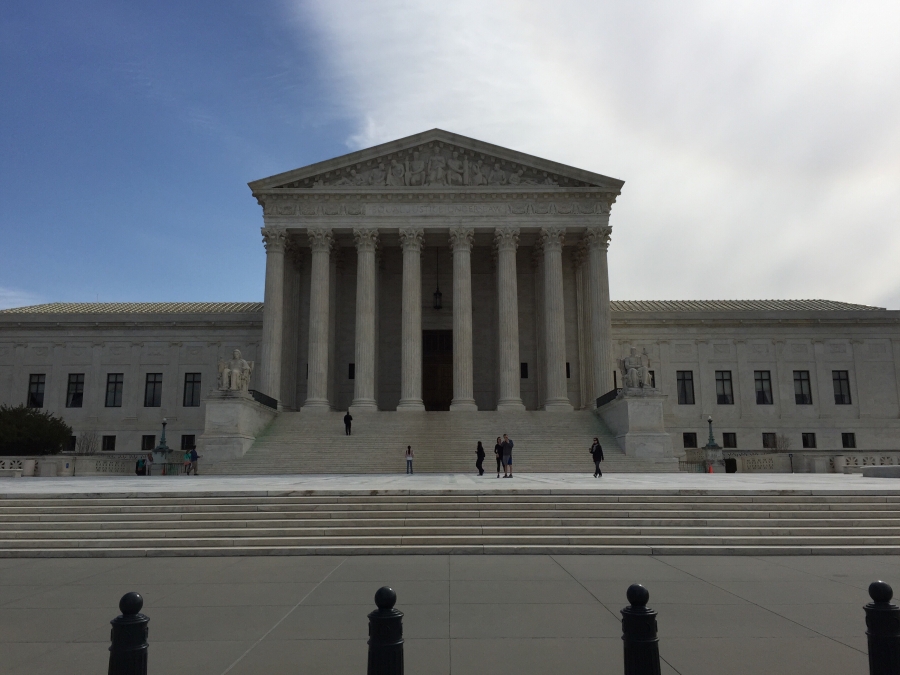
- Details
- By Jenna Kunze
The U.S. Supreme Court on Jan. 8 agreed to hear two cases challenging the Trump administration’s distribution of federal Covid-19 relief funding to include Alaska Native corporations (ANC).
On March 27, 2020, Congress passed the CARES Act to respond to the Covid-19 public health emergency and resulting economic hardship. Of the $150 billion relief package, Congress directed $8 billion to tribal governments.
Debate ensued among federally recognized tribes and major national and regional Native American organizations throughout Indian Country over whether or not Alaska Native corporations constitute “tribal governments.”
Alaska Native corporations were formed under President Richard Nixon as part of the Alaska Native Claims Settlement Act of 1971, with a mandate to support Alaska Native shareholders economically, culturally and socially.
Several federally recognized tribes filed a lawsuit that held the Alaska Native corporations do not fall under the same definition, and the 12 for-profit Alaska Native regional corporations and 177 Alaska Native village corporations should therefore not have access to the pool of relief money.
In September, a D.C. Circuit Court ruled to deny Alaska Native corporations CARES Act funding Congress had allocated to a “recognized governing body of an Indian tribe,” prompting petitions from both Alaska Native corporations and Treasury Secretary Steven Mnuchin.
Appellants argue that Alaska Native corporations have long been considered Indian tribes under Congress’s 1975 Indian Self-Determination and Education Assistance Act that granted tribes greater autonomy. By not allowing ANC’s to distribute relief funding, the appeal reads, “the D.C. Circuit’s decision will harm large segments of Alaska’s Native populations: specifically, those who either do not belong to any federally recognized tribe or who, primarily because of where they live, do not access services through a tribe, and instead rely on ANCs.”
Last April, 13 national Native American organizations signed onto a letter sent to the Interior and Treasury departments urging that funds only be distributed to tribal governments. Collectively, the 13 organizations represent almost every federally recognized tribe in the lower portion of the United States, including signers from the National Congress of American Indians, Native American Rights Fund, Native American Finance Officers Association, and the National Indian Gaming Association.
“If the Administration chooses to recognize ANC’s as government entities, this will set a dangerous precedent that will have greater negative implications beyond the CARES Act; including, but not limited to, the delivery and fulfillment of trust and treaty obligations across the federal government,” the letter said. “Such an action by this Administration would be an affront to our Tribal sovereignty.”
The state of Alaska, along with Sen. Lisa Murcowski, Sen. Dan Sullivan and Governor Michael Dunleavy, backed the Alaska Native corporations in the dispute.
The ANCSA Regional Association and the Alaska Native Village Corp. Association issued a statement Friday welcoming the Supreme Court’s decision to hear its case.
“We hold strong our belief that Alaska Native people should not be punished for the unique tribal system that Congress established for the state 50 years ago,” the statement read. “Nor should they be denied critical aid in a global pandemic because of a law’s use of commas. We are simply asking for Alaska Native people to receive the same support provided to millions of other Americans.”
More Stories Like This
Native News Weekly (August 25, 2024): D.C. BriefsUS Presidents in Their Own Words Concerning American Indians
Ethics Complaint Alleges Former Navajo Nation Chief of Staff Accepted Gifts From Contractor
Monday Morning (December 14, 2025): Articles You May Have Missed This Past Weekend
Senators Demand Accountability Amid Reports of ICE Questioning Native Americans
Help us defend tribal sovereignty.
At Native News Online, our mission is rooted in telling the stories that strengthen sovereignty and uplift Indigenous voices — not just at year’s end, but every single day.
Because of your generosity last year, we were able to keep our reporters on the ground in tribal communities, at national gatherings and in the halls of Congress — covering the issues that matter most to Indian Country: sovereignty, culture, education, health and economic opportunity.
That support sustained us through a tough year in 2025. Now, as we look to the year ahead, we need your help right now to ensure warrior journalism remains strong — reporting that defends tribal sovereignty, amplifies Native truth, and holds power accountable.
 The stakes couldn't be higher. Your support keeps Native voices heard, Native stories told and Native sovereignty defended.
The stakes couldn't be higher. Your support keeps Native voices heard, Native stories told and Native sovereignty defended.
Stand with Warrior Journalism today.
Levi Rickert (Potawatomi), Editor & Publisher

